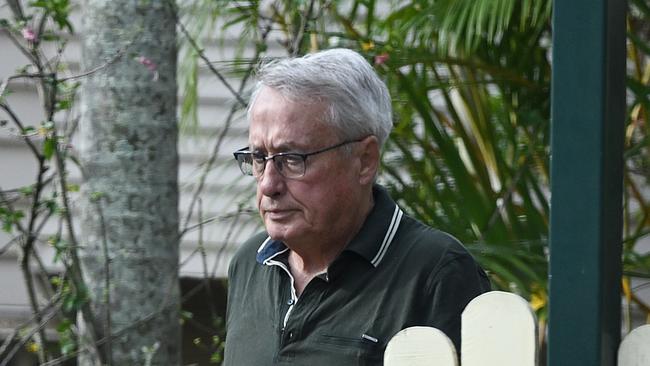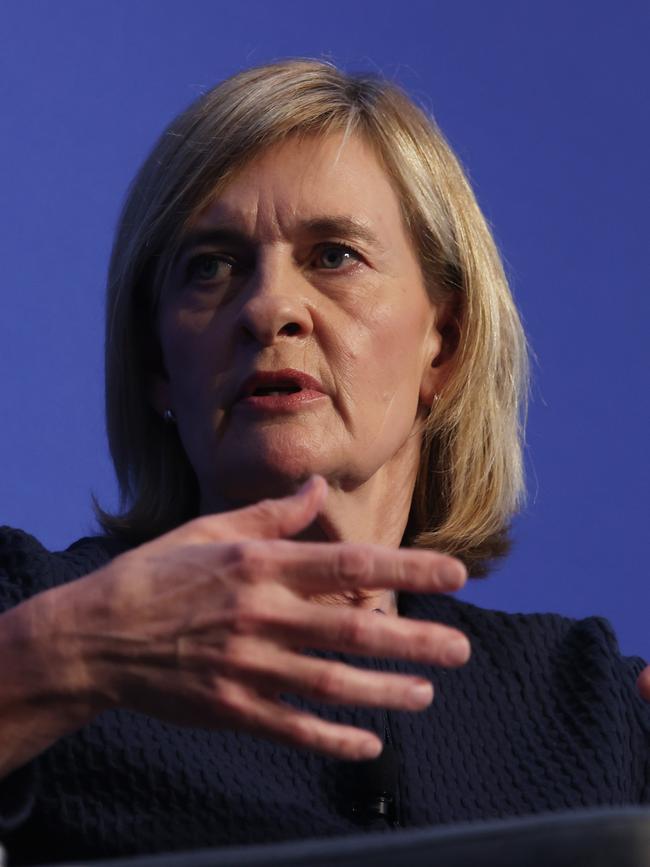Big super’s CEOs on notice from regulators over industry failures and ‘weak’ claims handling
Big super trustees are on notice from regulators about their failures to track death claims as the $4 trillion industry faces a much broader crackdown.
Regulators have warned big super they will crack down on the $4 trillion sector over failures to track end-to-end death benefits claims handling times and “weak” practices.
Australian Securities and Investments Commission commissioner Simone Constant read the riot act to super CEOs on Tuesday in a letter that revealed the corporate cop met with and issued notices to 10 companies requesting detailed data about their claims handling.
“All trustees experienced challenges providing data to ASIC about their end-to-end claims handling times,” Ms Constant said in the letter.
“Many trustees did not have systems in place to enable them to extract certain data without significant manual work.
“Even then, the data initially provided to us was generally of poor quality.”
Ms Constant said that “as a CEO, you will be an accountable person under the Financial Accountability Regime” to begin in March and said the interactions superannuation trustees had with their members had a “significant impact on their lives”.
She urged chief executives to share her letter with their board, review internal dispute resolution data to improve death benefit handling claims, and conduct a first-hit review of the business.
Ms Constant’s alert came on the same day HESTA revealed it would compensate more than 100,000 members after the fund downgraded unlisted assets in March 2020.
The $84bn health fund said it would compensate members over a move to downgrade the value of unlisted assets in some of its options in March 2020 but delay downgrading those same assets in other options for seven days, a move that left many members worse off.
Industry fund Cbus is also in the spotlight after ASIC this month sued the CFMEU-backed fund for mishandling $20m worth of death and disability claims.
Cbus is pushing ahead with boardroom renewal in the wake of the lawsuit, and on Tuesday it said CFMEU heavyweights Paddy Crumlin, Jason O’Mara and Lucy Weber would join its board after they passed an independent “fit and proper persons test”.
In her letter, Ms Constant said it was ASIC’s job to make sure superannuation funds dealt with member claims fairly and quickly, and said there could be consequences if they failed to turn around poor handling times.

“In our member services review work, we aim to drive industry progress on improving service delivery and member outcomes,” she said.
“This includes identifying noncompliance with the law for further investigation and, where appropriate, enforcement action.”
Ms Constant said ASIC began an industry-wide investigation this year, likely to be the “deep dive surveillance” deputy chair Sarah Court revealed last week.
She said the regulator was “looking at industry practices and compliance with laws relating to trustee administration and contact centres”, with a public report due early next year to focus on death benefit claims.
“In the meantime, this letter flags our observations of consistently weak trustee practices to prompt immediate action, where appropriate,” she said.
“We have observed operational failures by trustees to gather and analyse data that provides insights into the outcomes experienced by claimants.
“These failures make it impossible for trustee boards to provide appropriate oversight on their performance when handling death benefit claims.”
Ms Constant said the letter focused on death benefit claims handling, but many of the insights were applicable to the governance of other member services provided by trustees.
In a report released in May, Ms Constant said 10 out of 22 trustees examined for the analysis received a notice from ASIC.

“Following the website review, we issued notices on 10 trustees requesting granular claims data and documents such as policies, procedures, communications, claims files and complaints records,” she said.
“We also met with each trustee to discuss our initial observations and to identify priority areas for improvement.”
Trustees should set clear performance benchmarks against end-to-end claims handling times that “better reflect consumer expectations”, Ms Constant said.
“From a claimant’s perspective, the time taken for a claim to be processed starts the moment they first contact the trustee about the claim and ends once they receive payment,” she said.
But some trustees could not track end-to-end claims handling times because they “could not access this data”, Ms Constant said.
“Indeed, some trustees appeared to be surprised at their own data on end-to-end claims handling times when we presented it to them. This was highly concerning,” she said.
“Most trustees in our review were monitoring and reporting on claims handling times.
“However, many trustees did not track claims end to end. For example, some trustees only tracked the time taken to make a decision after the trustee sent out the initial claim package.
“Others only appeared to focus on the time taken by the trustee once they deemed applications from all claimants to be complete. Neither of these metrics reflects the experience of the person making the claim.”

Ms Constant said many trustees in our review produced frequent reporting on handling times for insured claims, but did not report on times for uninsured claims.
She said the majority of members whose deaths triggered a claim captured in ASIC’s review did not have insurance when they died. “As a result, some trustee boards did not receive reporting on most of their death benefit claims during the two-year period we reviewed,” she said.
“Boards should have access to regular performance reporting that is meaningful, complete and at a level of granularity that allows the board to identify issues it needs to engage with.
“Trustee boards that rely on incorrect, incomplete or inappropriate data and metrics to monitor performance and make decisions may fail to identify and address significant issues, resulting in consumer harm.
“We observed that some form of performance reporting was presented to most trustee boards at least annually, but often with inappropriate metrics, such as claims volumes or overall average handling times, which can mask issues that more appropriate metrics would reveal.”
Ms Constant’s warning to CEOs came after ASIC revealed a court case it lodged against industry fund Cbus.
The watchdog alleged the fund, chaired by national Labor president Wayne Swan, took more than a year in some cases to pay out death and disability claims.
It was alleged in court documents that Cbus self-reported mishandling $20m in claims relating to more than 11,000 members from September 2022 to November.
More than half of 7731 total permanent disability claims, 56 per cent, were not resolved within one year, ASIC alleged.
And of 3622 death benefits claims, 53 per cent had not been resolved within one year.





To join the conversation, please log in. Don't have an account? Register
Join the conversation, you are commenting as Logout